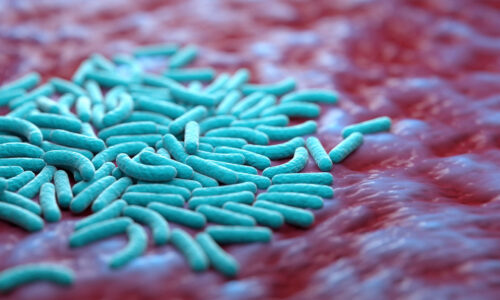Our brain burns about half a cup of sugar a day. This comes mainly from the sugar and starch we eat. But what happens when we stop eating carbs? Is it really possible to lose excess fat without carbs, by eating mostly fat and protein? And do it healthily and forever?
Fortunately, our bodies can also produce glucose from protein. But producing glucose for the brain from protein alone uses about 225 grams of protein per day. If we fasted, we would destroy ourselves in a few weeks. But people can fast for months. How is this possible? As early as 1967, Harvard scientists discovered that the liver can convert fat into ketones and that they can replace glucose as the brain's main source of energy. If not completely, then at least to a large extent.
The Origin of the Keto Diet
Does the Keto diet help you lose weight?
Reduces appetite
Does the keto diet help fight cancer?
Starving the microbiota
Bad for the heart
Diabetes risk
Bad for bones
Summary
The Origin of the Keto Diet
Keto diet —a high-fat, low-carb diet designed to induce the body to produce ketones—was proposed in 1921 by a prominent physician and scientist at the Mayo Clinic to help epilepsy sufferers reduce or even prevent seizures. Hippocrates had already used fasting to treat epileptic seizures, and according to Mark 9:29, Jesus seems to agree with him. However, it is still not clear, why replacing the brain's main fuel source, glucose, with ketones has such a calming effect on brain overactivity.
The effectiveness of the ketogenic diet in treating epileptic seizures has been shown in many controlled studies. However, since the introduction of anticonvulsant drugs in 1938, the use of the keto diet in epilepsy treatment has fallen into the background. Today, it is mainly used in children.
The ketogenic diet has been around for nearly a century and has proven to be an effective treatment for epilepsy. But does that mean that all of us who don't have epilepsy should eat this way? And how would it affect our health? Would it be safe at all?
Does the Keto diet help you lose weight?
 By avoiding carbs, you force your body to burn more fat. Following a ketogenic diet increases fat burning significantly, but at the same time you are eating more fat. The question is, can you burn more fat by eating fat than you would on a lower-fat diet?
By avoiding carbs, you force your body to burn more fat. Following a ketogenic diet increases fat burning significantly, but at the same time you are eating more fat. The question is, can you burn more fat by eating fat than you would on a lower-fat diet?
The father of the modern ketogenic diet, which has spread from hospital walls to the masses, can be considered Gary Taube, a journalist who published a controversial article in 2002 titled, “What if it was all one big fat lie?” (What If It's All Been a Big Fat Lie?). Some of the scientists Taube cited in his article later accused him of twisting his words.
In response to the criticism his paper received, Taube decided in 2012 to prove that a low-carb diet was an effective way to lose weight and get rid of excess fat. He managed to raise $40 million to conduct the study and hired researcher Kevin Hall to do the work.
In short, 17 overweight men were locked up for two months so that researchers could have complete control over their metabolism. For the first month, they were fed a regular, high-carb diet (50% carbs, 35% fat, 15% protein), after which they were put on a keto diet (5% carbs, 80% fat, 15% protein) for one month. Of course, both menus contained the same amount of calories.
If Taubel were right, calories from fat should be less fattening than calories from carbohydrates. What actually happened was that when you switch for the ketogenic diet Instead, the “burning” of stored body fat slowed down and the loss of protein and muscle mass increased.
Just by looking at the sauna scale number, the keto diet is a real weight loss success story. But if we look a little closer at what this rapid weight loss is due to, we see that it comes mainly from a greater from the "burning" of proteins and the loss of muscle mass and water.
Reduces appetite
But what about hunger? What does the keto diet do and do well-known keto diet recipes help with weight loss? In the aforementioned study, all subjects were made to eat the same amount of calories, but what if the keto diet menu reduces appetite and in real life we eat less by that amount? After all, the key to long-term success with any weight loss method lies in sticking to the prescribed diet.
Indeed, a low-carb, high-fat diet reduces appetiteAlthough the measured decrease in appetite was relatively small, it occurred in the context of calorie restriction, which itself increases appetite. Therefore, it can be said that the ketogenic diet does indeed reduce appetite slightly.
A similar appetite-controlling effect is also seen with a plant-based whole food diet, due to the lower energy density of the food, which allows you to eat more. Another reason to not rely on the ketogenic diet alone for appetite reduction is that even in studies where it was used to control seizures, diet adherence decreased after just a few months, under 50%.
Does the keto diet help fight cancer?
Advocates of the ketogenic diet as an anti-cancer tool report excellent results in the fight against cancer in individual cancer patients. There may certainly be patients who have had good results, but there is no solid evidence that extreme restriction of carbohydrates helps fight cancer, is still a little, to put it mildly.
The theoretical basis for this theory is also uncertain. It is a common claim that cancer cells feed on sugar. This is true, but all other cells also feed on sugar. Moreover, it has been found that Cancer cells can also feed on ketones.
In fact, it can Ketone-based diet can make cancer more aggressive, for example, breast cancer patients had significantly reduced survival over a 5-year period. Researchers are even considering cancer drugs that block ketones development.
Although clinical evidence is scarce today, there are several ongoing studies investigating the relationship between the ketogenic diet and cancer, and it is possible that carbohydrate restriction may be beneficial in the treatment of some types of cancer.
Starving the microbiota
 The keto diet as a fad is a relatively new thing, but thanks to its long history of fighting epileptic seizures, the side effects are relatively well documented.
The keto diet as a fad is a relatively new thing, but thanks to its long history of fighting epileptic seizures, the side effects are relatively well documented.
The first thing to point out is nutrient deficiencies. Ketogenic dieters have been documented to have 17 micronutrient deficiencies. Children have been diagnosed with scurvy and several have died from selenium deficiency.
It's true that mineral and vitamin deficiencies can be compensated for with supplements, but how can we replace prebiotics (8 different types of fiber), which are abundant in whole grains and legumes and which are food for our gut microbes?
It's no wonder that constipation is one of the most common side effects of the keto diet, when starving your microbiota has a whole host of negative consequences in addition to constipation. Among other things, it has been found that ketogenic diets reduce the diversity of our microbiotaWhich in turn is linked to weight gain.
And it's not just about the fiber, which is also offered in capsules. It has been found that about 71% of dietary fat, especially saturated fatty acids (which we get mainly from animal foods), reaches the large intestine, affecting the gut biota in a way that increases the risk of obesity and chronic inflammation.
Bad for the heart
And how do all those saturated fats that ketogenic dieters consume in large quantities affect the heart? A meta-study that analyzed data from four large studies that lasted at least a year found that followers of low-carb diets died significantly earlier.
Specifically, the risk of cardiovascular disease depends on the type of dietary fat consumed. Namely, consumers of low carbohydrates and animal-based fats and proteins have 50% more likely to diecardiovascular disease. However, no such association was found between low carbohydrate intake and excessive vegetable fats and heart disease.
Diabetes risk
 The keto diet and foods do lower blood sugar levels, but the problem for diabetics is not high blood sugar levels, but a lack of insulin or its inability to control blood sugar levels. By eating only fat, you keep blood sugar levels low, but you make the disease worse. How is that?
The keto diet and foods do lower blood sugar levels, but the problem for diabetics is not high blood sugar levels, but a lack of insulin or its inability to control blood sugar levels. By eating only fat, you keep blood sugar levels low, but you make the disease worse. How is that?
As early as December 1927, Shirley Sveeney published the results of a study that showed that The ketogenic diet significantly increases
falsely diagnosed with glucose intolerance in just a few days. A week of a high-fat diet and you can increase the amplitude of blood sugar fluctuations by a factor of seven, eating the same amount of carbohydrates as the week before.
It is possible to treat type 2 diabetes with sufficient weight loss, but by choosing the keto diet as a weight loss method, you are simply adding fuel to the fire and making your disease worse.
The reason keto proponents claim they can cure type 2 diabetes is that you can get off your diabetes medication on the keto diet. This is for the simple reason that you don't eat carbs and your blood sugar stays very low. But the disease hasn't gone away. Insulin resistance is still there. However, with a healthy, balanced diet, it is possible How to truly overcome type 2 diabetes.
Bad for bones
The International Society of Sports Nutrition states in its official statement that ketogenic diets negatively affect results, and this is true for both low and high intensity workouts. For non-athletes, ketosis can change increased perceived exertion and fatigue, which in turn makes physical activity more unpleasant. The keto diet has the same negative effects on both for endurance athletes as well as for bodybuildersThe reason is the previously mentioned decrease in muscle mass.
But how does ketosis affect bone density? It turns out that in addition to a loss of muscle mass, keto diets also bone density lossThe reason is thought to be that ketosis causes acidosis, or acid poisoning, in the body. Ketones are acidic and cause a mild metabolic acidosis.
Summary
Ultimately, in medicine, it all comes down to whether the potential benefits outweigh the risks. If you suffer from epilepsy that is not responsive to medication, but the ketogenic diet would help, and the alternatives are even more devastating, then the positives may outweigh the negatives. But for those who simply want to shed some extra pounds, other alternatives should definitely be considered.

Allan Randlepp
NutritionistAllan is a nutritionist and trainer whose favorite topics are lifestyle and longevity, including nutrition and physical activity.
What is GK and how is it eaten?





